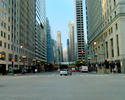In every pursuit these days, “the narrative” seems to be the thing. Tell a story that checks enough of the right boxes in the zeitgeist, the thinking goes, and you can get citizens, taxpayers and consumers to “buy” what you want them to buy.
This is a reality that’s being used against Flyover Country – but one that also provides us with opportunities to flip the script. read more »






















